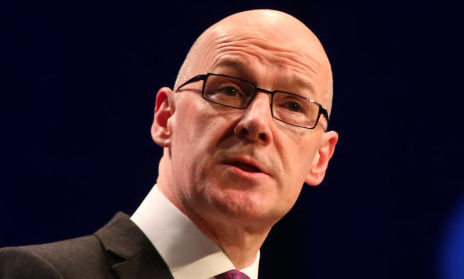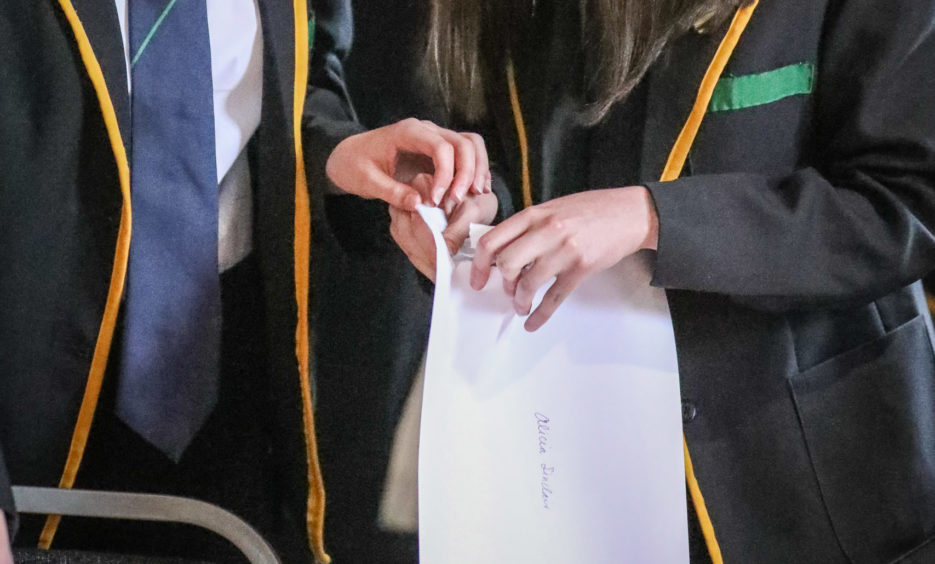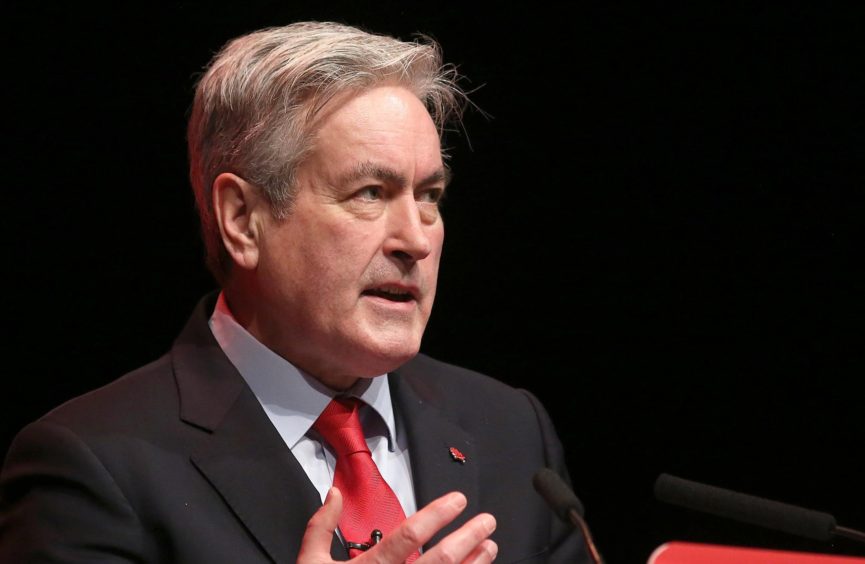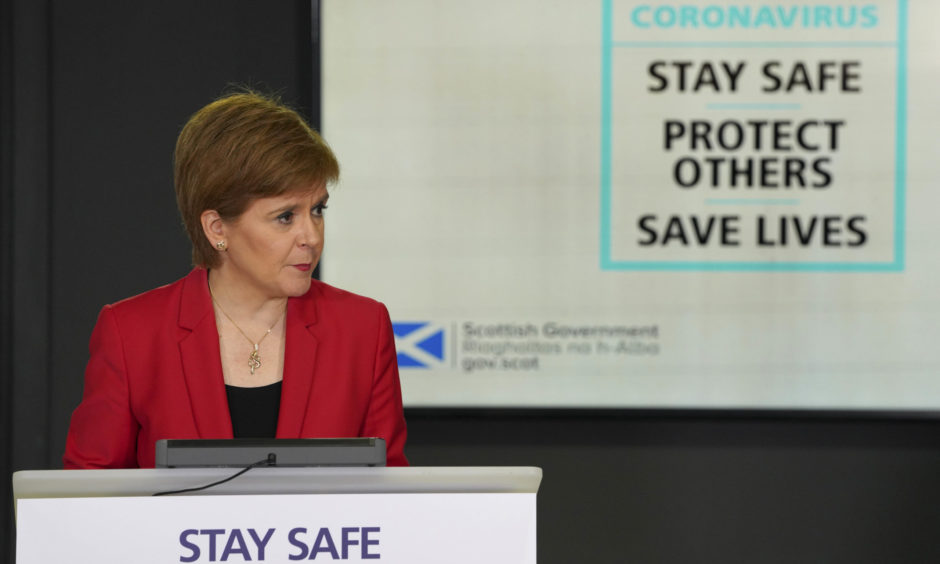Exam bosses have blamed a technical glitch for a row that left opposition parties plotting to oust Scotland’s education secretary.
Scottish Labour is seeking support from other parties for a motion of no confidence in John Swinney, who is also deputy first minister, after a leaked timeline on the SQA’s intranet site appeared to show some grade appeals would be withheld until May.
The post appeared to show the results for “priority” appeals, which include candidates waiting for university places, will be released on September 4, whereas others will only be released on May 31 next year.
However, the exam body said the timeline – which has since been deleted – actually displayed a “meaningless date set as part of a technical requirement to allow the system to go live” and there will be “no nine-month wait for grades”.
An SQA spokesman said: “The results of the priority appeals will be emailed to schools and colleges for learners by September 4.
“We are committed to processing all appeals as quickly as possible. We will provide a date for all other reviews shortly after August 21.”
Asked during the Scottish Government coronavirus briefing on Friday when she expected non-priority results to be published, Nicola Sturgeon instead provided the publication date for priority appeals.
This timeline was put up on the SQA intranet, and shows a plan for many students to be kept waiting for appeal results until May 31 next year. That's nine months.
This is not a credible appeal system. @JohnSwinney must go, and @ScotGov must return to trusting teachers' judgments pic.twitter.com/yAxHNHBJJb
— Richard Leonard (@LabourRichard) August 7, 2020
Scottish Labour education spokesman Iain Gray claimed the SQA and Scottish Government had “deflected criticism” by arguing students could appeal unfair grades but the intranet leak “blows the lid off their defence”.
“To throw young people’s life chances into doubt is a disgrace but to then make them wait over nine months for justice is a total insult,” he said. “It is simply astonishing that the SQA and the deputy first minister thought they could get away with this.”
Mr Gray continued: “It is only two days since John Swinney told pupils who had been downgraded that the answer was the appeals process. Now we can see that’s going to be another kick in the teeth for these young people.
“We cannot have confidence in John Swinney and the SQA to run a credible appeals system. The only way out of this mess now is for the Scottish Government to return to trusting teachers’ judgements.
“It is now clear that John Swinney has completely lost control of the SQA and the exam process, and he needs to go.”
The Scottish Government has faced widespread criticism over the grading system that replaced exams this year, which were cancelled in Scotland for the first time in modern history due to the coronavirus pandemic.
A quarter of all results were lowered by SQA moderators and some pupils were marked down based on the past performance of their schools.
Children from poorer backgrounds appeared to be the worst affected, with figures showing a 15% gap between the actual and estimated pass rate for children in the most deprived areas, compared to 7% for those in the least deprived areas.
Hundreds of pupils took to Glasgow’s George Square on Friday morning to protest the system – the methodology of which was only revealed on results day.
The Scottish Conservatives have pledged to back Labour’s motion of no confidence against Mr Swinney, arguing the public “no longer trusts him”.
The party’s education spokesman, Jamie Greene, suggested Mr Swinney was no longer a “safe pair of hands” and insisted Scotland’s pupils, parents and teachers need an education secretary “who inspires their confidence”.
“Public confidence in Mr Swinney’s ability to handle his brief, particularly his response to the current SQA fiasco, has hit rock bottom,” he said.
Both Ms Sturgeon and Mr Swinney have defended the grading system, stressing the appeals process would allow eligible pupils to challenge their results if they were downgraded from teachers’ estimates.
Asked whether Mr Swinney or the SQA’s chief examining officer, Fiona Robertson, should “take responsibility” and resign, Ms Sturgeon said there were “debates to be had” once the results process was over.
She said: “If we get a situation where lots of appeals are awarded, then it will show that that process has worked as intended. So let’s wait until we get to the end of that process and see what the situation is.
“There will be questions asked, there will be debates to be had, there will be a reflection the government and SQA want to make about the method used… I’m not suggesting otherwise.
“But don’t just cast aside this next part of the process because this is the part of the process that we always intended would be about ensuring the individual injustices could be identified and rectified.”



